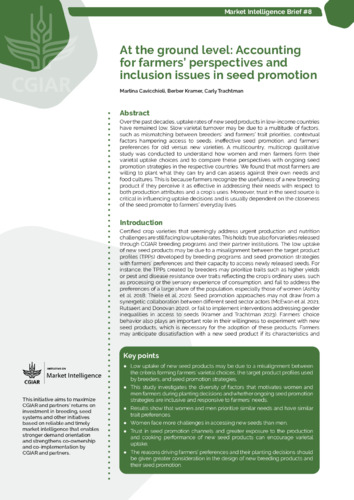At the ground level : Accounting for farmers’ perspectives and inclusion issues in seed promotion
Abstract
Over the past decades, uptake rates of new seed products in low-income countries have remained low. Slow varietal turnover may be due to a multitude of factors, such as mismatching between breeders’ and farmers’ trait priorities, contextual factors hampering access to seeds, ineffective seed promotion, and farmers’ preferences for old versus new varieties. A multicountry, multicrop qualitative study was conducted to understand how women and men farmers form their varietal uptake choices and to compare these perspectives with ongoing seed promotion strategies in the respective countries. We found that most farmers are willing to plant what they can try and can assess against their own needs and food cultures. This is because farmers recognize the usefulness of a new breeding product if they perceive it as effective in addressing their needs with respect to both production attributes and a crop’s uses. Moreover, trust in the seed source is critical in influencing uptake decisions and is usually dependent on the closeness of the seed promoter to farmers’ everyday lives.

